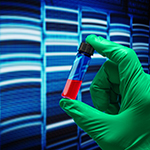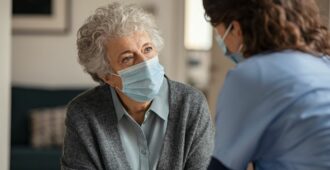
The establishment of the NSW Health Statewide Biobank will position NSW as a global leader in health research and opens up a world of possibilities for researchers seeking to better understand the links between genetics, environmental factors and health outcomes, according to Sax Institute CEO Professor Sally Redman.
Professor Redman was commenting in response to NSW Minister for Medical Research Pru Goward’s announcement of a $12 million investment in Australia’s first large-scale automated biobank, due to open in 2017.
“The ambitious scale of the NSW Health Statewide Biobank will enable the storage of millions of samples from many research participants – allowing researchers to better understand how to prevent, diagnose and treat disease,” said Professor Redman.
”It will also add a whole new dimension to large-scale population studies like the 45 and Up Study, enabling us to tease out the way that lifestyle, environment and genes interact to cause disease. This will open up many new opportunities for prevention, early detection and treatment.
The Sax Institute’s 45 and Up Study is Australia’s largest ongoing study of healthy ageing, with more than 260,000 participants providing ongoing health and lifestyle information, and its start-up bio-specimen collection from over 3000 participants will be housed at the Biobank.
“The biobank will enable us to significantly expand this collection in the future,” said Professor Redman.
Scientific Director of the 45 and Up Study Professor Emily Banks said that large-scale biobanks were operating in many other countries and the NSW Health Statewide Biobank would provide a great resource to Australian researchers.
“The UK Biobank has been an enormous success, with bio-specimens from more than 500,000 men and women allowing hundreds of research projects spanning cancer, cardiovascular disease, dementia, lung disease, mental health and much more,” said Professor Banks.
Integrating bio-specimens with health and lifestyle factors allows researchers and the community a much more comprehensive, state-of-the-art understanding of health in many areas including:
- How your genes can determine risk factors for conditions such as heart disease or cancer
- How to use genetics to more effectively treat or manage chronic diseases like diabetes
- How genetic variations account for the way people respond to certain medical treatments, for example your reaction to codeine
- How your genes interact with lifestyle and environmental factors, such as the connection between diet and colorectal cancer
- If genetic information can motivate people to change their actions or environment so they don’t develop common health conditions in the first place.
The biobank will be constructed at the Professor Marie Bashir Centre located on the Royal Prince Alfred Hospital campus and is due to be complete in July 2017.
Find out more
- Contact the Sax Institute Communications team
- Learn more about the 45 and Up Study
- Watch the Channel 9 News report on the Biobank annoucement






